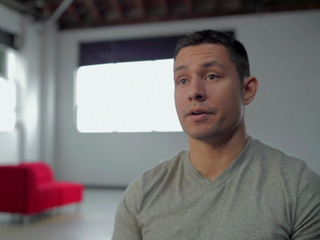Handling Summer’s Challenges
4-minute read
Handling Summer’s Challenges
4-minute read
For some Veterans, fun summer activities may also bring on stress, discomfort, or challenging memories. Here are a few situations to be mindful of over the next few months and some helpful advice so you can make the most out of your summer.
Loud Noises or Fireworks
Many Americans may find themselves at a Fourth of July gathering this summer. And, while setting off fireworks may be a good-natured tradition, loud noises may also be reminders of combat that trigger uneasiness and discomfort in you.
“Anytime fireworks go off, a lot of people look at it like, ‘Oh, pretty, Fourth of July, patriotic,’” says Roshelle, a U.S. Army Veteran who served in Iraq. “But I look at that and still think, ‘OK, here are these missiles coming in. … It’s still unnerving.”
For some Veterans, like Don, who served in Vietnam, the experiences of combat bring home challenging memories and flashbacks. “Loud noises, claps, or sudden bangs would startle me,” he says.
Fortunately, there are tools and techniques that can help with these stressful situations. This Independence Day, try these techniques so you can enjoy time with your family and friends:
- Communicate with family and friends if you’re ready. Begin by letting people know when certain places or activities make you uncomfortable.
- Try grounding yourself by focusing on details of your surroundings or neutral physical sensations, such as the feeling of your feet on the floor.
- Practice relaxation techniques, such as taking slow, deep breaths.
- Get up and move around, have a drink of water, or wash your hands.
- Calmly remove yourself from the situation.
“What really helped me was just talking to people who knew what I was going through. That helped a lot,” says Chris, a Marine Corps Veteran “They’d teach me tricks: Like, I found out if you look at the fireworks, it’s not as bad.”
Crowded Places
This summer, you might find yourself in situations where you’re surrounded by a crowd and feel uncomfortable. It’s not uncommon for some Veterans to feel on edge or overwhelmed in these settings, finding it difficult to relax.
“When you’re in large crowds or there’s a lot of chaos happening, you have to keep an eye on everything because you don’t know where a potential threat is,” says Casey, a former U.S. Army medic. “Because after you see something like a life or death matter, your number one goal is, ‘I’m always going to protect myself.’”
Feeling on edge is also called hypervigilance, a symptom some Veterans experience because of combat or trauma. Being on very high alert — constantly on guard — to possible risk or threats may interfere with the ability to enjoy life or even get through the day.
“I couldn’t go anywhere having my back exposed — people walking behind me I didn’t know,” says Marcos, a U.S. Marine Corps Veteran who served three tours in Iraq.
Military training taught Veterans the importance of being observant and alert when they need to be. But as a civilian, living in a world where everything feels like a potential threat can be challenging or exhausting. Hear how other Veterans have found tools to help cope with feeling on edge and to get back to enjoying life.
Social Gatherings
There might be increased pressure to attend social events during the summer. Stepping outside of your comfort zone may be challenging at first.
“I wanted to stay home, because I knew my family was safe. We were in our house or in our yard, and that was a controlled environment,” says Brian, a U.S. Army National Guard Veteran. “To go somewhere where it was something I couldn’t control — definitely my anxiety would be a lot higher.”
Professional treatment, such as group therapy or prolonged exposure therapy, can help Veterans understand their thoughts and reactions and teach them techniques for coping with stressful situations.
“Being able to talk helps me to manage a lot, because it’s not built up,” says Ertell, a Vietnam Veteran. “Which helps me to manage my anger now and helps me to manage my hypervigilance. I’m not as suspicious of people as I once was.”

